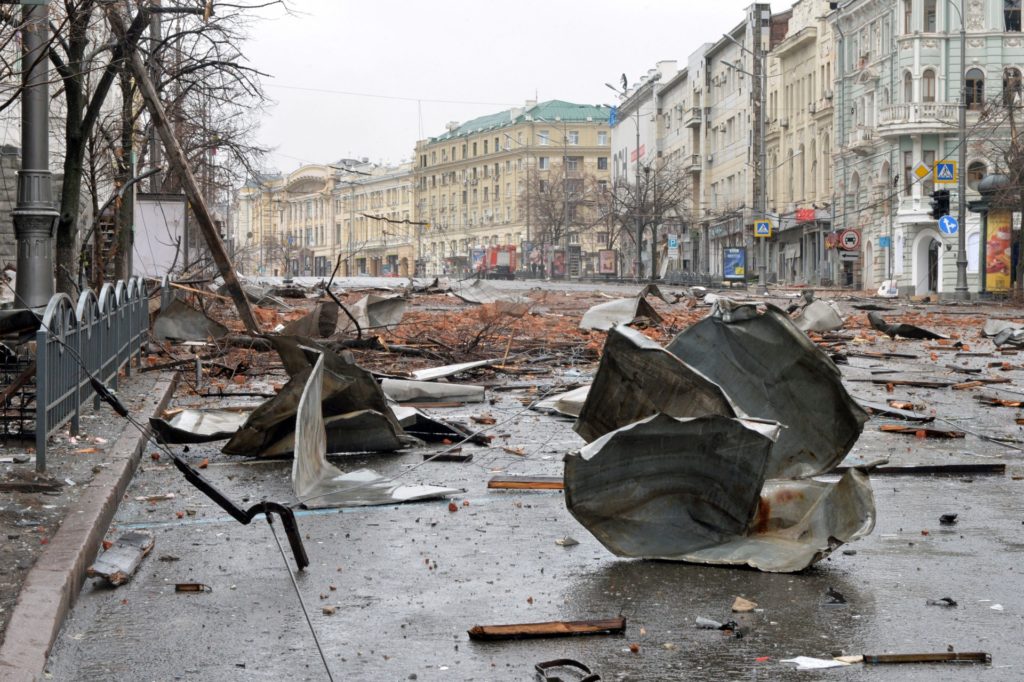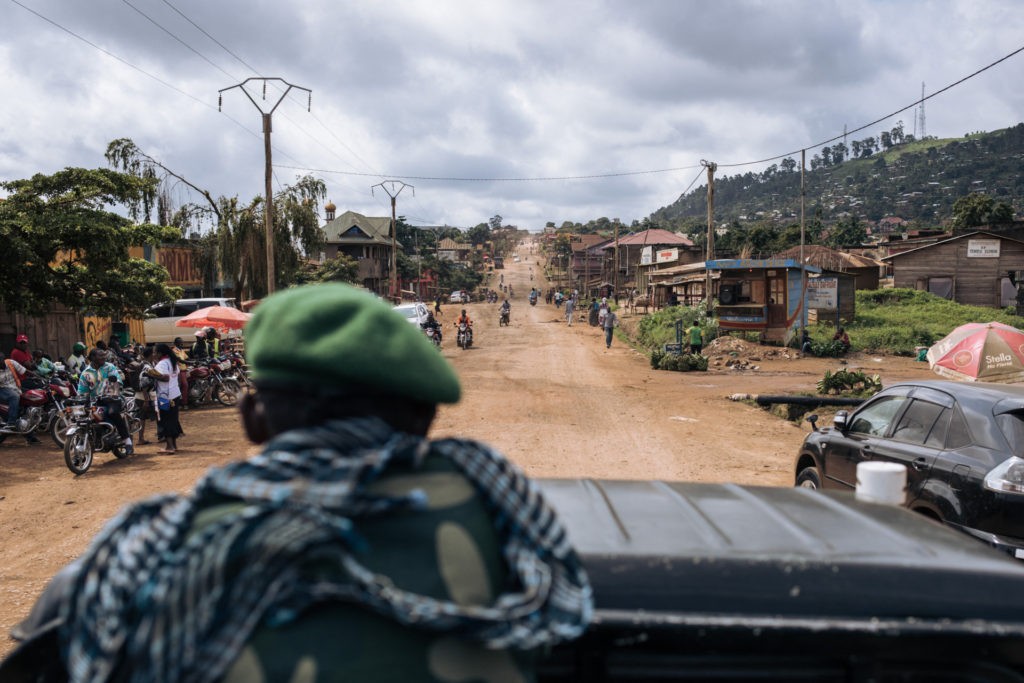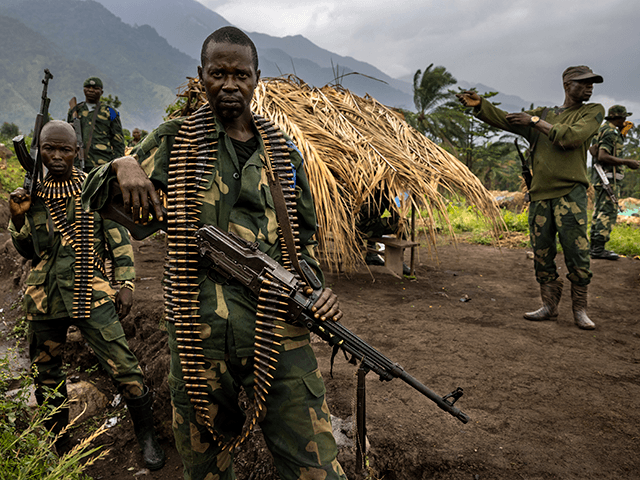The Foreign Press Association, Africa – an organization for foreign reporters on the continent – issued an impassioned statement Tuesday condemning global coverage of the Russian assault on Ukraine as “racist” and showing a “lack of nuance and empathy” towards victims of war in Africa and other areas with majority non-white populations.
Russia invaded Ukraine in 2014, illegally occupying Ukraine’s Crimea region and fueling a war between its proxies and the Ukrainian military in the country’s eastern Donbas region. Last week, Russian leader Vladimir Putin announced he would recognize those provinces as the sovereign “states” of Donetsk and Luhansk, and claimed the pro-Russian “governments” of those regions requested Russian military assistance against Ukraine.
At press time, ongoing assaults by Russian forces on major metropolitan areas including Kyiv, Kharkiv, and Mariupol continue. Putin claimed in his address recognizing Donetsk and Luhansk as countries that Ukraine had no “tradition” of being a country and was “completely created by Russia.” He and his officials have repeatedly asserted that the goal of the invasion is to “de-Nazify” Ukraine, a claim at odds with the fact that democratically elected Ukrainian President Volodymyr Zelensky is Jewish and lost family in the Holocaust.

A picture shows damages after the shelling by Russian forces of Constitution Square in Kharkiv, Ukraine’s second-biggest city, on March 2, 2022. (SERGEY BOBOK/AFP via Getty Images)
The Foreign Press Association, Africa issued a statement condemning coverage in American and Western media of the Ukrainian war that attempted to distinguish between that conflict and those in Africa and Asia, describing the situation in cities such as Kyiv as shocking because Ukrainians are “civilized” and “European.” The association lamented “racist and skewed coverage” and demanded similarly empathetic coverage of African civilians as those of Europe.

Congolese soldiers drive along the road from Beni to the Ugandan border, 80 kilometers east, northeastern Democratic Republic of Congo, on May 23, 2021. (ALEXIS HUGUET/AFP via Getty Images)
“The Foreign Press Association, Africa is disturbed by the unfortunate opinions that our Western colleagues continue to publicly express about the distinction they see between war and suffering in Ukraine and those that have taken place in poor countries,” the statement read in part, and said:
The expressions, namely, various iterations on the theme that it is unthinkable to see violence in countries populated by white people, reinforce views that already exist systematically in societies at large, and consequently perpetuate misunderstanding that causes real human harm and division.
“The idea that war is a thing that happens in lands outside of the West, is beyond myopic,” the statement continued. “It is a gross misrepresentation of the entirety of human history.”
“People who are not white are not more innately prone and habituated to violence and suffering. People who are not white are no less civil or incapable of solving conflict,” the association asserted.
The “attitude” of indicating that white victims of war are more “civil,” the journalists continued, showed a “lack of dignity afforded to black and brown-skinned victims of conflict. It is also seen in the lack of nuance and empathy given to people suffering from war and other man-made emergencies (including climate change).”
The statement concluded with a demand that international news agencies “urgently” embrace diversity.
While the Association provided no examples, several reports have compiled commentary from Western sources that elevates the plight of Ukrainian war victims apparently based on their European status.
Among the most frequently cited is a column in the UK Telegraph by Daniel Hannan published last week, lamenting that Ukrainians “seem so like us” and “watch Netflix and have Instagram accounts,” which makes Putin’s assault more “shocking.”
“As the parliaments and courts give way to the institutions of autocracy, so does the peace that they sustained. Civilisation itself is under attack in Ukraine. We shall miss it when it has gone,” Hannan concluded.
CBS News journalist Charlie D’Agata, reporting from Kyiv, apologized last week for also referring to Ukrainians as “civilized,” comparing their status positively to countries such as Iraq and Afghanistan.
“This isn’t a place – with all due respect – like Iraq, like Afghanistan that has seen conflict raging for decades,” D’Agata had said. “This is a relatively civilized, relatively European – I have to choose those words carefully, too – city where you wouldn’t expect that or hope that it’s going to happen.”
Another journalist criticized for bias in Ukraine coverage, Al Jazeera English’s Peter Dobbie, described Ukrainian refugees as “any European family that you would live next door to” compared to Middle Easterners and Africans.
“What is compelling is that just looking at them, the way they’re dressed,” Dobbie said. “These are prosperous, middle-class people, these are not obviously refugees trying to get away from areas in the Middle East that are still in a big state of war. These are not people trying to get away from areas in North Africa.”
Africa is home to several longstanding wars. The one most recently receiving international attention is the ongoing civil war in Ethiopia, where the government of Prime Minister Abiy Ahmed and the separatist Marxist Tigray People’s Liberation Front (TPLF) have stood accused of genocide against each other and widespread use of rape as a weapon of war. Abiy has personally entered the front lines of the war and encouraged fighters to “bury this enemy with our blood and bones,” referring to the Tigray ethnic minority.
Abiy is a Nobel Peace Prize winner.
Elsewhere in Africa, civilians in Democratic Republic of Congo (DRC) have endured what some have described as a “forever war” fought among a variety of militias seeking a stranglehold over lucrative mines. In Central African Republic (CAR), Christian and Muslim militias have been at war – with reported Russian help – since at least 2013. The Somalian government has spent over a decade fighting the al-Qaeda affiliate al-Shabaab, and American forces conducted an airstrike on al-Shabaab targets last week.

COMMENTS
Please let us know if you're having issues with commenting.